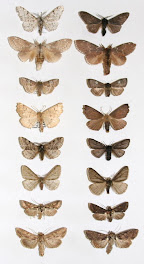There has been a certain amount of controversy in the anthropological literature concerning Neanderthal hunting ability. Although Neanderthals were freqently found in associatation with spear points, and other artifacts, and various faunal assemblages there has been some doubt about whether they were hunters or scavengers.
Neanderthal Skull


In 2000 specimens from Vindija cave in Croatia were being radiocarbon dated. Part of the process includes the assessment of stable isotopes. To refresh your memory, stable isotopic analysis of carbon can be used to detect terrestrial versus marine diets. Stable isotopic analysis of nitrogen can be used to determine trophic level of the food consumed.
Neanderthal and Human Skeleton

 Thanks for the picture Dharma Bums
Thanks for the picture Dharma BumsThe analysis indicated that Neanderthals were acting as top-level carnivores and were securing animal protein mainly through hunting rather than scavenging.
The article I took this from is Neanderthal diet at Vindija and Neanderthal predation: The evidence from stable isotopes. You can also find more information here Stable isotope evidence for increasing dietary breadth in the European mid-Upper Paleolithic.
Additional interesting articles:
Constructive Interactions among Nutrients and Bone-Active Pharmacologic Agents with Principal Emphasis on Calcium, Phosphorus, Vitamin D and Protein
Animal Source Foods and Human Health during Evolution
Paleoecological reconstruction of a lower Pleistocene large mammal community using biogeochemical ({delta}13C, {delta}15N, {delta}18O, Sr:Zn) and ecomorphological approaches
Origins and evolution of the Western diet: health implications for the 21st century. I'll have more to say about this article in a later post.








